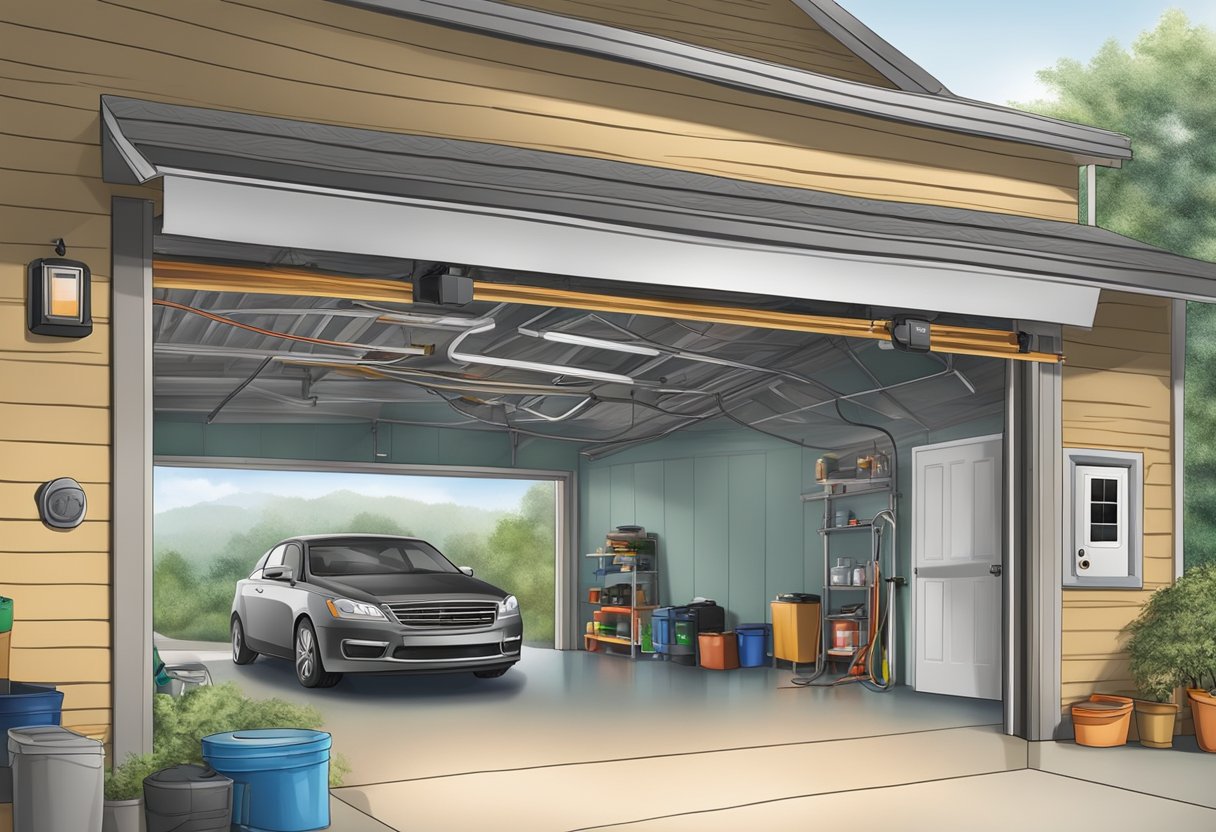Check Best Thermostat Pricing in Amazon
** As an Amazon Associate, I earn from qualifying purchases.
Thermostat wire is a low-voltage cable that is commonly used to connect heating and cooling systems to their respective thermostats. However, some homeowners may wonder if they can use thermostat wire for other purposes, such as connecting their garage door opener. While it may seem like a convenient solution, it’s important to understand the potential risks and limitations before proceeding.
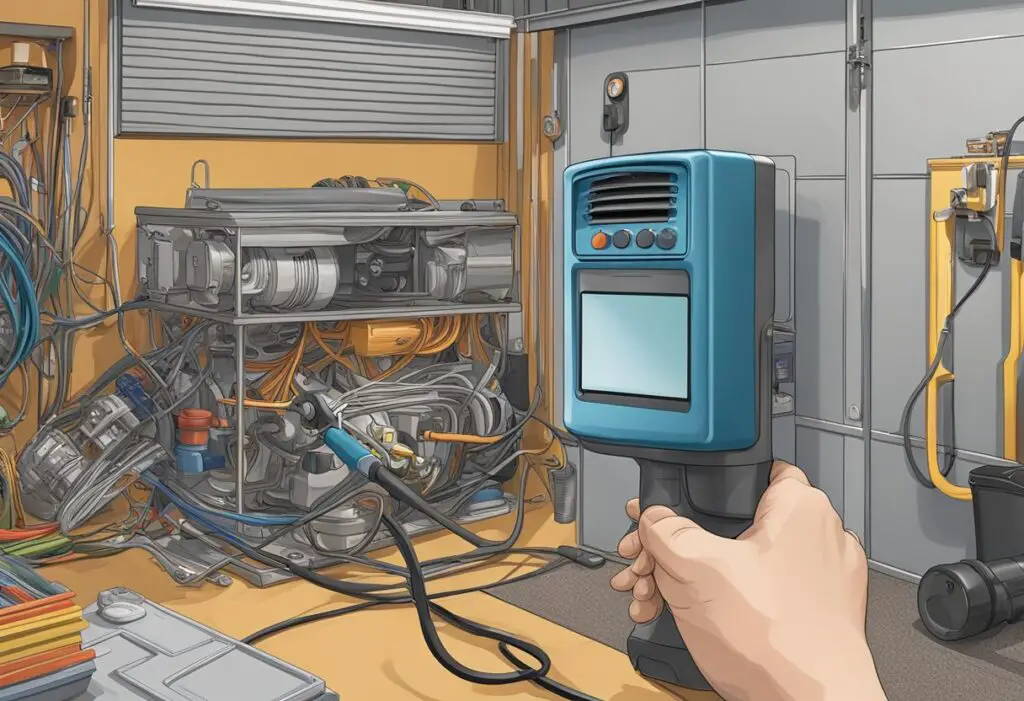
Thermostat wire typically consists of two to eight wires and is designed to carry a low voltage of 24 volts or less. In contrast, garage door openers typically require a higher voltage of 120 volts. Using thermostat wire for a garage door opener could result in damage to the opener or even a fire hazard. Additionally, garage door openers require a specific type of wire that is rated for outdoor use and can withstand exposure to weather and moisture.
- Understanding Thermostat Wire Specifications
- Assessing Garage Door Opener Requirements
- Compatibility Between Thermostat Wires and Garage Door Openers
- Safety Considerations for Wiring Garage Door Openers
- Installation Guidelines for Garage Door Opener Wiring
- Maintenance and Troubleshooting of Garage Door Opener Wiring
Understanding Thermostat Wire Specifications
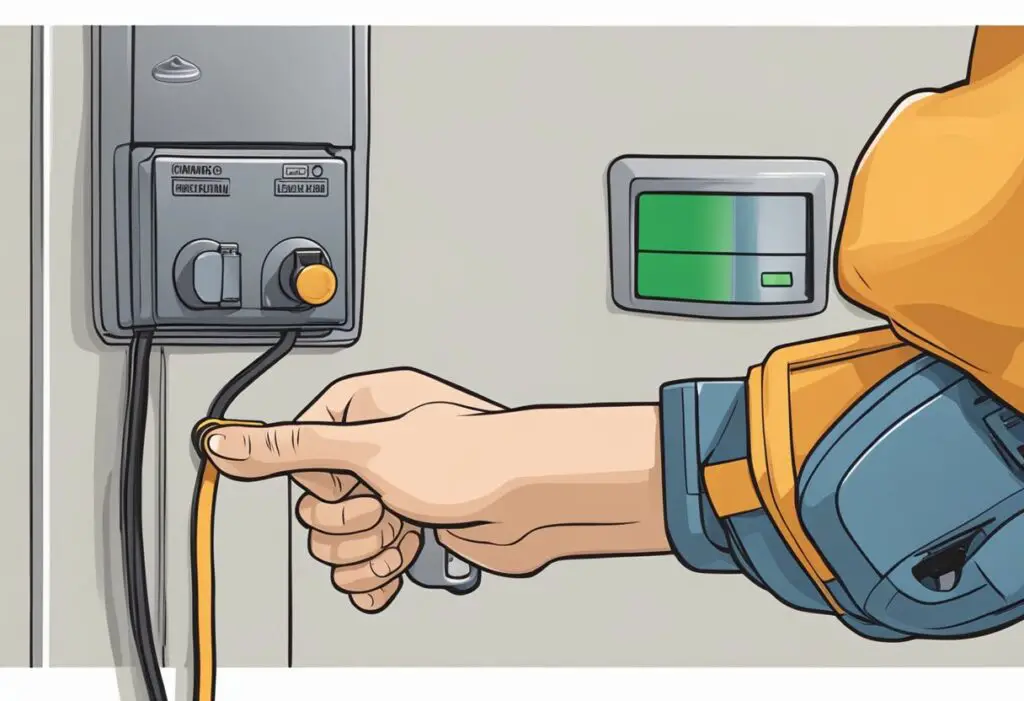
Thermostat wire is a type of wire that is commonly used for connecting thermostats to heating and cooling systems. However, it can also be used for other low-voltage applications, such as garage door openers.
When selecting thermostat wire for a garage door opener, it is important to understand its specifications. Here are some key specifications to consider:
- Wire Gauge: The gauge of the wire refers to its thickness. The most common gauges for thermostat wire are 18, 20, and 22. For garage door openers, 18 gauge wire is recommended as it can handle higher current loads.
- Number of Conductors: The number of conductors in the wire refers to the number of wires inside the insulation. Thermostat wire typically comes in 2, 3, 4, or 5 conductor configurations. For a garage door opener, a 2-conductor wire is usually sufficient.
- Insulation Type: The insulation type refers to the material that covers the wire. The most common insulation types for thermostat wire are PVC and plenum. PVC insulation is suitable for most applications, while plenum insulation is required for use in air handling spaces.
- Temperature Rating: The temperature rating of the wire refers to the maximum temperature that the wire can safely handle. Thermostat wire typically has a temperature rating of 60°C or 90°C. For garage door openers, a 60°C rating is sufficient.
When selecting thermostat wire for a garage door opener, it is important to choose a wire that meets the specifications of the opener and the local building codes. By understanding the specifications of thermostat wire, you can ensure that your garage door opener is installed safely and correctly.
Assessing Garage Door Opener Requirements
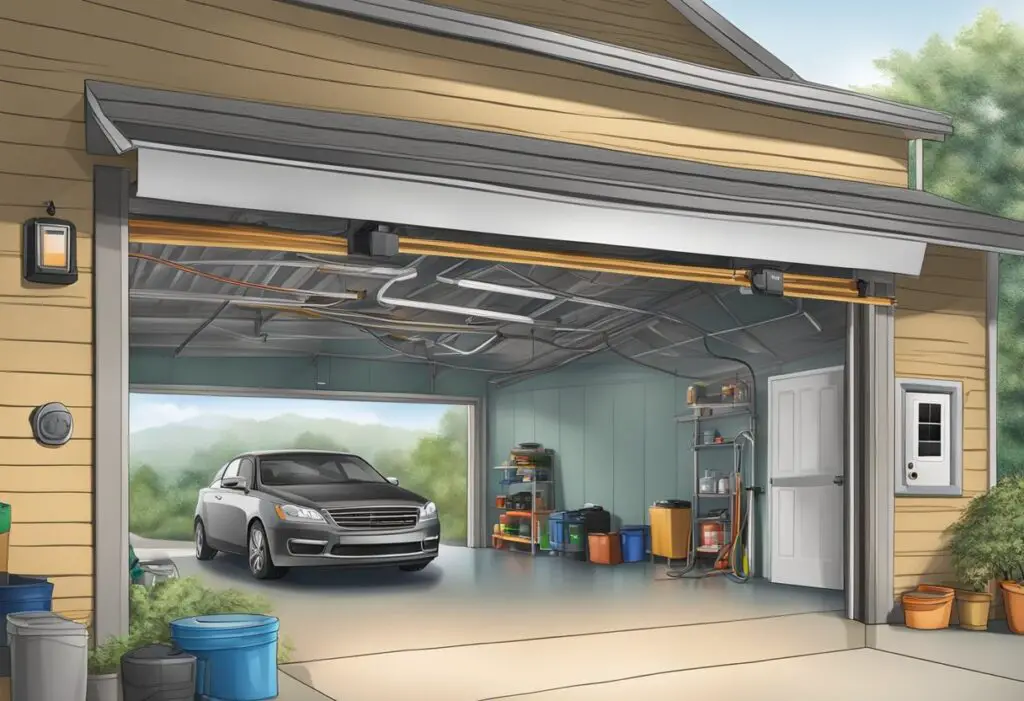
Before deciding whether to use thermostat wire for a garage door opener, it’s important to assess the requirements of the opener. This includes the type of garage door, the weight of the door, and the size of the garage.
Type of Garage Door
There are two main types of garage doors: sectional and one-piece. Sectional doors are made up of panels that slide up and overhead, while one-piece doors swing up and out. Sectional doors are more common and require less clearance space than one-piece doors.
Weight of the Door
The weight of the garage door is an important factor when choosing a garage door opener. Heavier doors require more power to lift, so a stronger opener is needed. In general, a 1/2 horsepower opener can handle most residential garage doors, while a 3/4 horsepower opener is recommended for heavier doors.
Size of the Garage
The size of the garage can also affect the choice of garage door opener. A larger garage may require a longer rail to accommodate the opener, while a smaller garage may need a compact opener. It’s important to measure the height and width of the garage door opening to ensure the proper size opener is selected.
Compatibility Between Thermostat Wires and Garage Door Openers
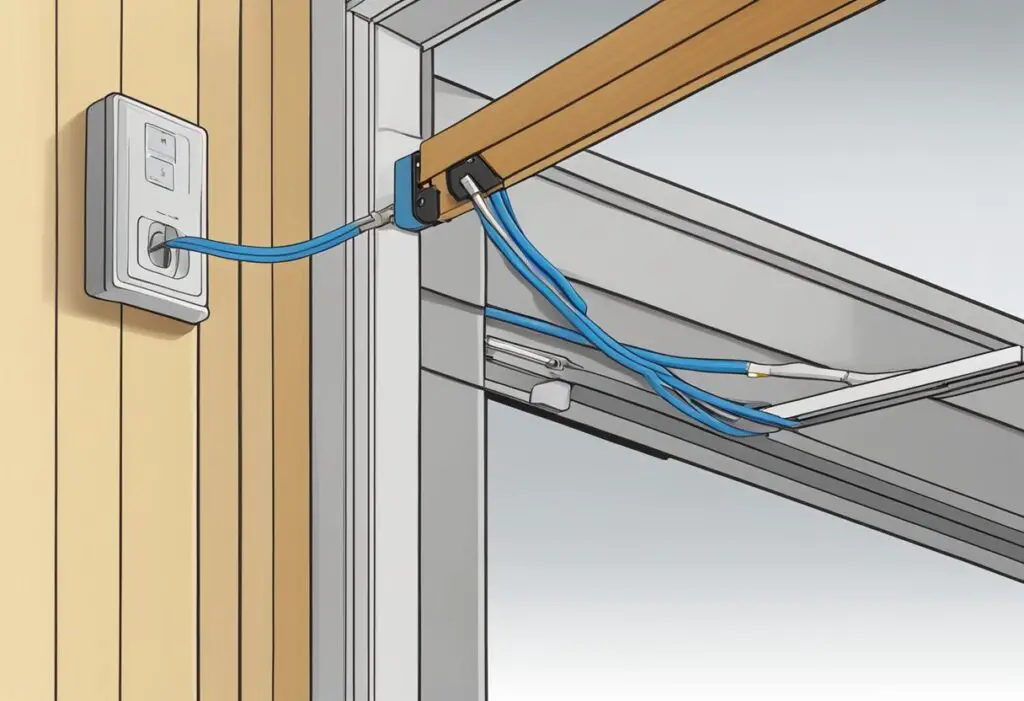
Thermostat wires are commonly used in HVAC systems to control the temperature of a room or building. However, some people may wonder if they can use thermostat wires for their garage door opener.
The short answer is yes, you can use thermostat wires for your garage door opener. In fact, many garage door openers come with thermostat wires already attached. However, it is important to ensure that the wires are compatible with your specific garage door opener model.
Thermostat wires typically come in 18 or 20 gauge and are made of copper. These wires are designed to handle low voltage and low current applications, which makes them suitable for use with garage door openers.
When connecting thermostat wires to a garage door opener, it is important to follow the manufacturer’s instructions. Some garage door openers may require specific wiring configurations or additional components, such as a transformer or relay.
Check Best Thermostat Pricing in Amazon
** As an Amazon Associate, I earn from qualifying purchases.
Safety Considerations for Wiring Garage Door Openers
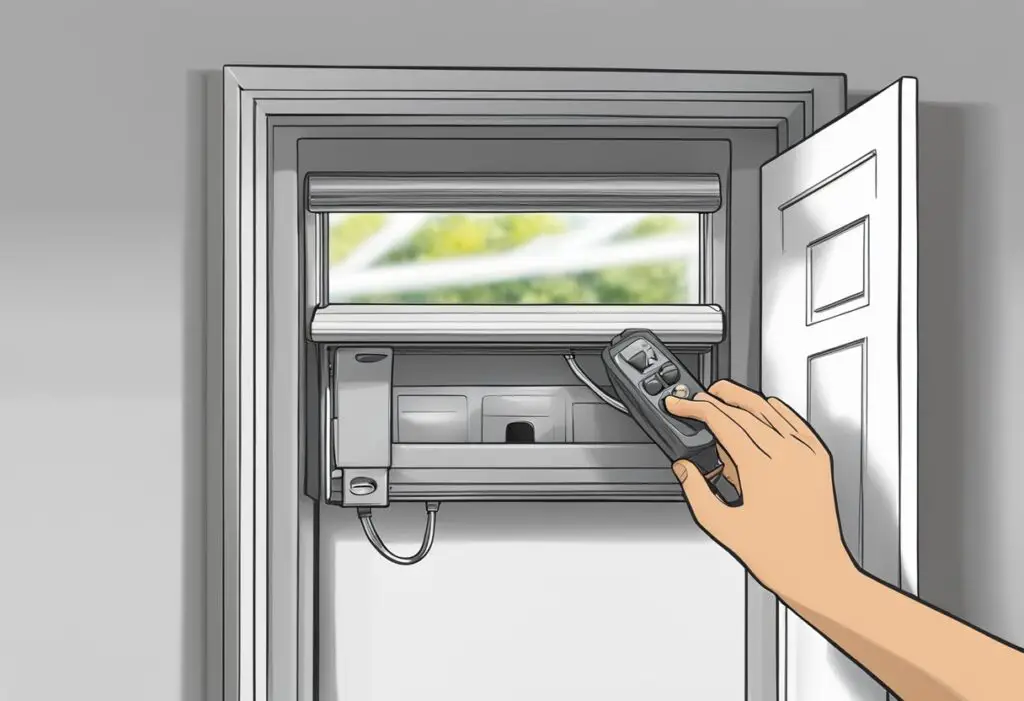
When it comes to wiring a garage door opener, safety should always be a top priority. Garage door openers require a low voltage wire, typically 24 gauge, which is commonly used for thermostats. However, using the wrong wire or improper installation can lead to serious safety hazards, such as electrocution or fire.
Here are some safety considerations to keep in mind when wiring a garage door opener:
- Use the right wire: It’s important to use a wire that is specifically designed for low voltage applications, such as thermostat wire. Using a wire that is not rated for low voltage can cause it to overheat and potentially cause a fire.
- Proper installation: The wire should be installed properly and securely, away from any sharp edges or moving parts. It’s also important to avoid running the wire near any electrical sources, such as outlets or light fixtures.
- Grounding: The garage door opener should be properly grounded to prevent electrical shock. This can be done by connecting the ground wire to a grounding screw on the opener or to a grounded metal surface.
- Professional installation: If you’re not comfortable with wiring or electrical work, it’s best to hire a professional to install your garage door opener. They have the knowledge and experience to ensure that the wiring is done safely and correctly.
Installation Guidelines for Garage Door Opener Wiring
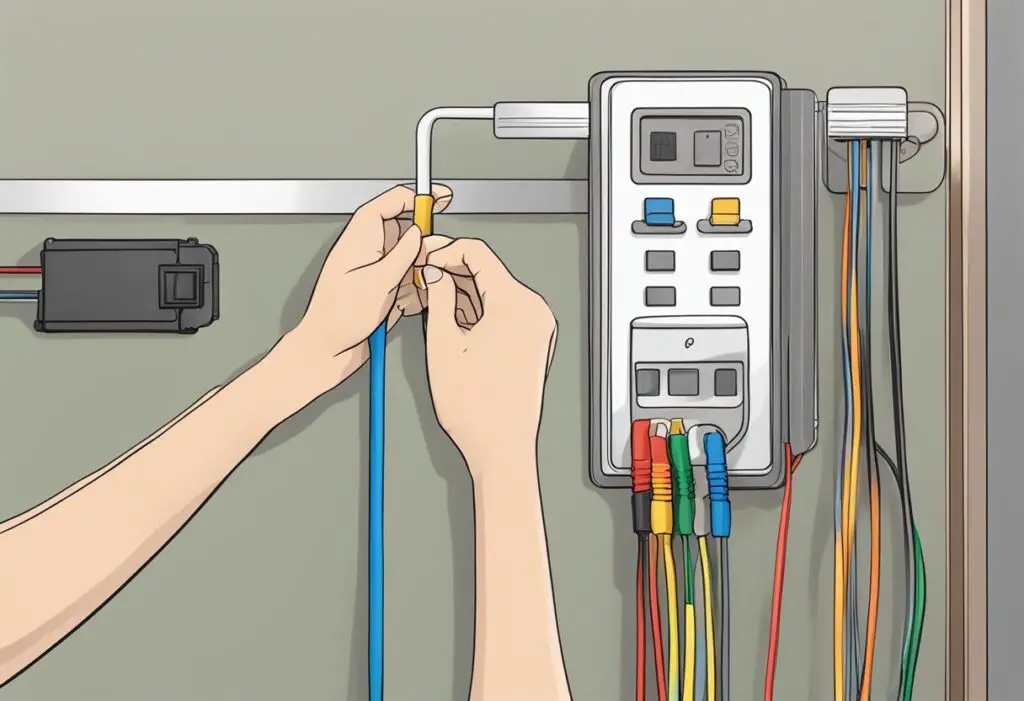
When installing wiring for a garage door opener, it is important to follow certain guidelines to ensure safety and proper functionality. Here are some tips to keep in mind:
Use the Right Wire
It is important to use the appropriate wire for your garage door opener. While thermostat wire may be compatible with some models, it is not recommended for all. Consult the manufacturer’s instructions to determine the appropriate wire gauge and type.
Keep Wiring Away from Moving Parts
When installing wiring for a garage door opener, it is important to keep the wiring away from moving parts such as the door and the opener motor. This will prevent the wiring from getting damaged or caught in the moving parts.
Use Proper Connectors
When connecting the wiring, use proper connectors to ensure a secure and safe connection. Avoid using electrical tape as it may come loose over time and pose a safety hazard.
Ground the Wiring
Make sure the wiring is properly grounded to prevent electrical shock or damage to the opener motor. Follow the manufacturer’s instructions for grounding requirements.
Test the Wiring
After installation, test the wiring to ensure proper functionality. Make sure the opener motor runs smoothly and the door opens and closes correctly. If there are any issues, consult the manufacturer’s instructions or contact a professional for assistance.
Maintenance and Troubleshooting of Garage Door Opener Wiring
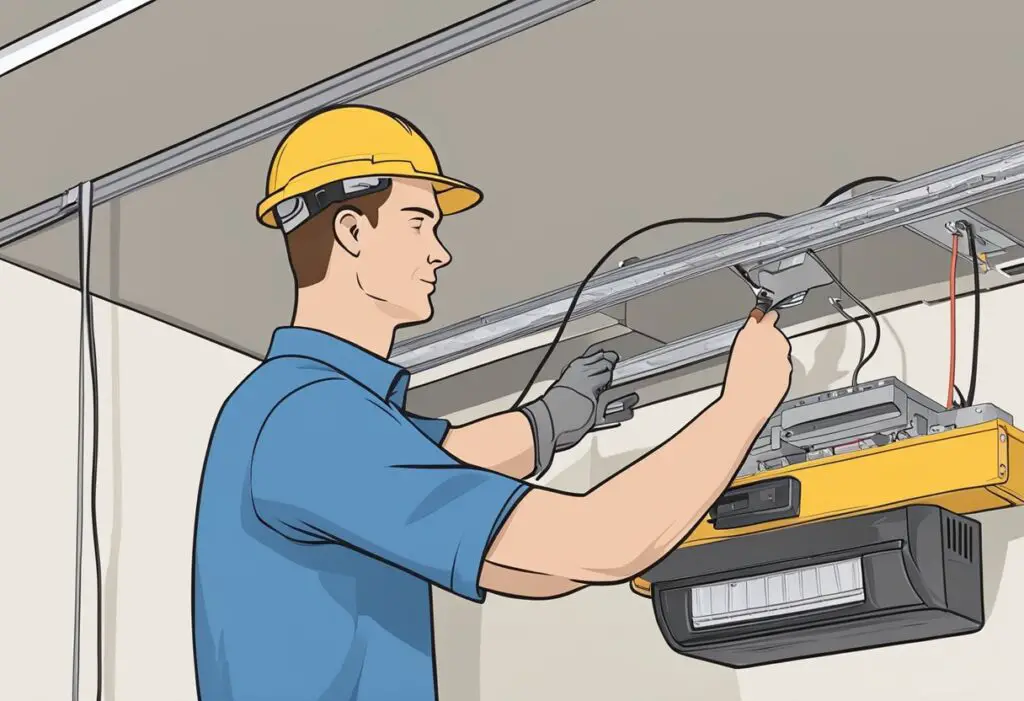
Regular maintenance of garage door opener wiring is essential to ensure its smooth operation. Here are a few tips to keep your wiring in good condition:
- Check the wiring periodically for any signs of wear and tear, such as frayed or damaged wires, loose connections, or corroded terminals. If you notice any issues, repair or replace the wiring as soon as possible.
- Keep the wiring clean and free from dust, debris, and other contaminants. Use a soft-bristled brush or a vacuum cleaner to remove any dirt that may have accumulated on the wires.
- Lubricate the moving parts of the garage door opener regularly to prevent excessive wear and tear on the wiring. Use a silicone-based lubricant that won’t damage the wiring.
If you encounter any issues with your garage door opener wiring, here are a few troubleshooting tips:
- Check the power source to ensure that the wiring is receiving power. If the wiring is not receiving power, check the circuit breaker or fuse box to see if a breaker has tripped or a fuse has blown.
- Inspect the wiring for any signs of damage or wear and tear. If you notice any issues, repair or replace the wiring as soon as possible.
- Check the garage door opener motor to ensure that it is functioning properly. If the motor is not working, it may be a sign of a faulty wiring connection.
Regular maintenance and troubleshooting of garage door opener wiring can help prevent issues and ensure its smooth operation.
Check Best Thermostat Pricing in Amazon
** As an Amazon Associate, I earn from qualifying purchases.

